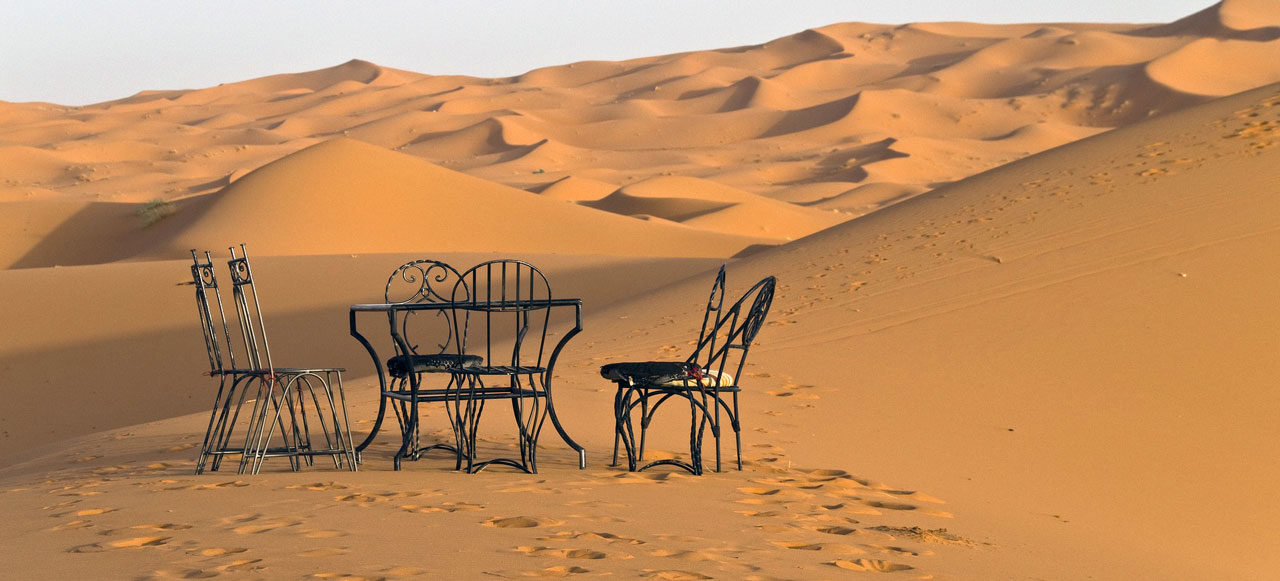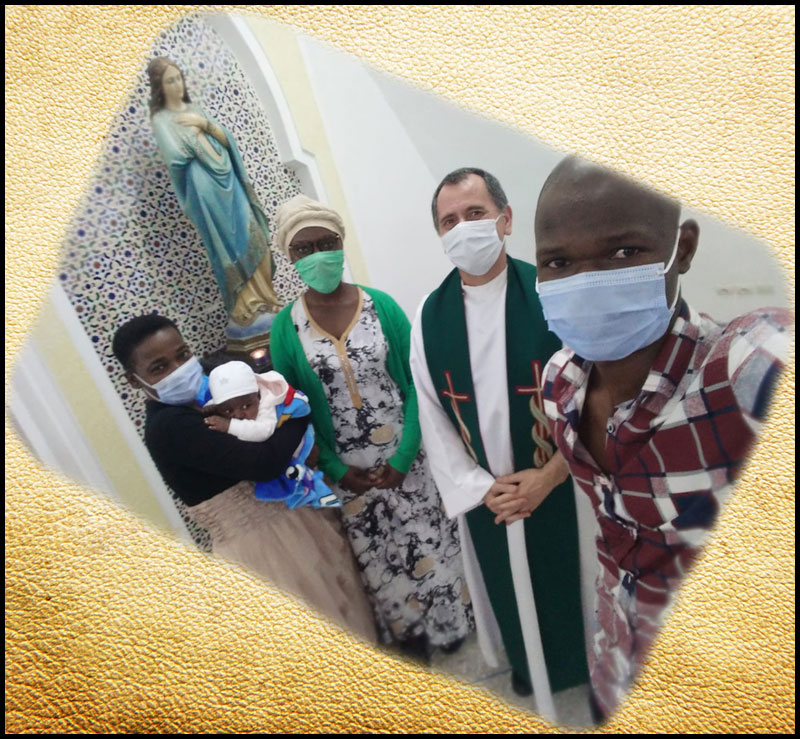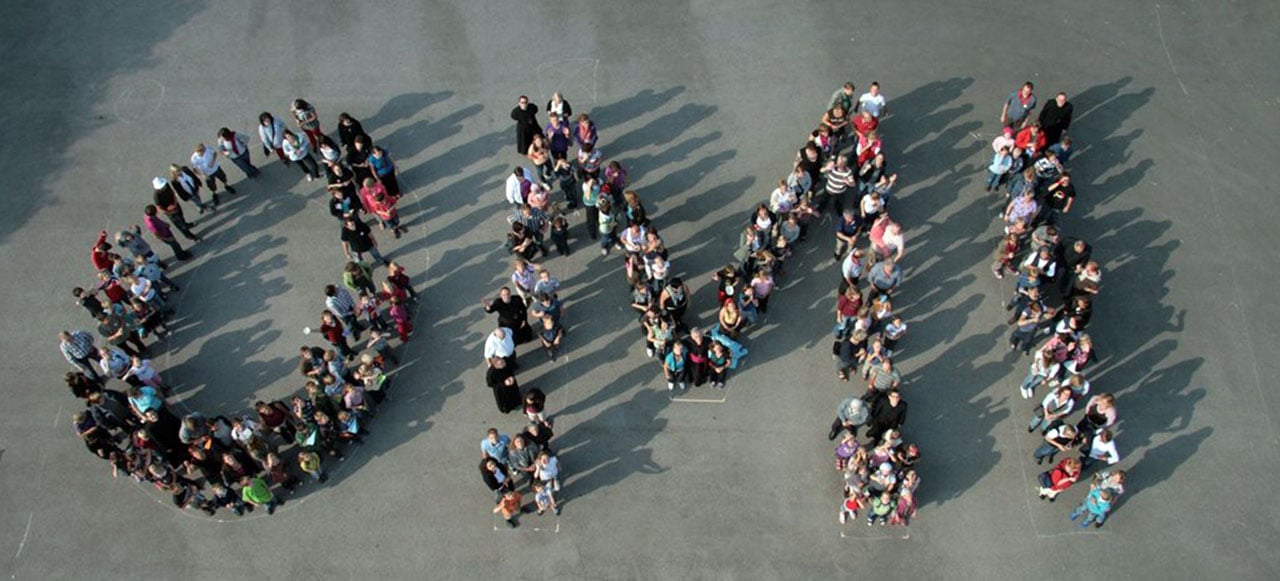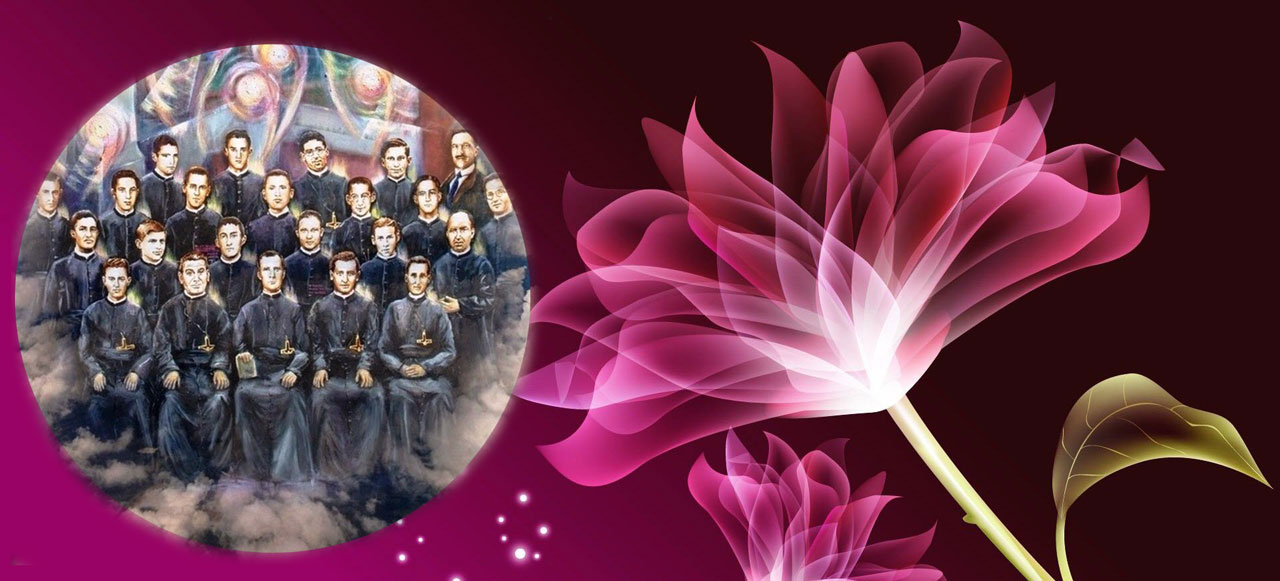WESTERN SAHARA
Fr. Luis Ignacio (Chicho) ROIS, OMI
I look at the photo again, after eight months have gone by. They have been eight months of waiting without being able to celebrate Mass. Eight months of living. The woman – let’s call her Maria (Mary) – is with her child, let’s call him Yosuha (Jesus). The COVID comes when, like many others, she is pregnant. She came to the Sahara from her native country, on the west coast of Africa, after a trip that she does not want to remember. Here, she found good work, with days of more than 10 hours on her feet cleaning fish and thankful for it. She found a partner (as others did not) and she got pregnant (as many of the others did). She began to come to Mass, and we came to know each other. She tells us that her delivery date could come any day now.
She stays in a house with several other renters, (how many to a room, five, ten…who knows?). Of course, they must go to work because the money-making machine cannot be stopped, no matter what happens. One day, at work, everyone is locked up, Moroccans and migrants, for the COVID test. Many tested positive, and so all are quarantined in the same cold rooms where they work, day after day, … without facilities, without privacy. They call us on the phone, we take turns calling them to encourage them… but they will not let us visit them. We are helpless.
Shut in, too, we still go out into the streets, as though to go shopping, and find people in need. Some are acquaintances, others have been forced to come out, despite the fine – they have nothing to lose and are hungry. We have a Muslim friend with whom we organize food assistance, once, twice, three times. No one else does anything because no one is taking pictures. But, here and there, the official food assistance does take place.
There are new COVID tests. Since Maria is pregnant, they take her to the hospital. We call a friend, …let’s call him Yunis (Jonah) because he has saved many migrants from the belly of the whale. He arranges everything so she is cared for and given medicine … but they will not let us see her. We talk to each other, we pray. She is not confident. She says she is fine … but is her child being treated? Many are not. Well, it will be over, perhaps in a few weeks. Meanwhile, many others are transferred to centers in the area, to be quarantined or to be cured of COVID. “We eat well”, they tell us, “they give us medicine,” … but not everyone will take it because they do not trust – so much has already happened to them!
On the weekends, we take turns sending out a message of encouragement: God’s Word for Sunday. Then, we celebrate Lent and Easter, some in their homes, the Oblates in the Church, which is, as before COVID, at once, both empty and full. Our Muslim friends likewise cannot pray in their Mosques during Ramadan, Eid el Fitr, Eid al-Adh. In this experience of religious homesickness, we console each other.
After several months, the Mosques open, and we can also open the Churches in Laayoune and Dakhla, but not in El Marsa where Mary lives. We go back and forth. Before entering Dakhla, there is mandatory PCR, otherwise you may not continue. To be able to enter and celebrate on the weekends, we must undergo the test, once, twice … some six times or more. Sometimes we wait more than five hours after a journey of six hours. And there, still masked, we celebrate and console one another while we wait. There are more quarantines…some people work, some do not.
In Dakhla, we must close the center for disabled children. The women who work at the center have invented “teleworking” in their own way. Using “WhatsApp”, they describe for the mothers the prescribed rehabilitation exercises, physical therapy, speech therapy and it works! Even the children’s siblings take part and learn! Bouh is happy. He is moved and we are moved. He still wants to reopen the center as soon as possible. After some months, he succeeds. We carry on, in spite of everything, even the loss of some children who left us during this time. They will be our angels.
As we are coming back from Dakhla, the phone rings. Mary’s friend calls us: her labor pains have begun. Although El Marsa is closed, it is possible to reach El Aaiún. Yunis prepares everything in the hospital for the birth. We are afraid… because of so many other women who have been accompanied by our helpers, in these months (more than eighty), only some of whom are still with us…and only some of their children. We pray. They call us: Yosuha is born! Yunis does everything possible so we can visit her, as he has done before, to enable us to visit other sick people, during this time. We see Mary, happy with Yosuha. We meet her partner who seems scared. They tell us that everyone is fine. We laugh.
The days go by. More trips, sick people, shipwrecks, people who stop working, phone calls, food assistance, medicine, … Our helpers, themselves migrants, are exhausted, but they are happy. We too are worried; we do not know what we will be able do next month or the next … we trust, we prepare for next year … We come and go, we celebrate Mass, we pray, we listen, we help, we do not know what else to do, we fight … we live.
Today we take out this photo. In the last eight months, there has been no mass in El Marsa. There are only a few of us, practically hidden away, still not opening our doors, masked …
Some say, “if this continues, we will have to go elsewhere because there is no work for us here,” “To the Canary Islands?” I ask. They tell me, “No, for the moment, to Casablanca”; they laugh, like someone who is playing hide and seek.
“When we open our doors, we will have to celebrate to welcome Yoshua to the community,” I suggest. “Yes,” says Mary in a strong voice, almost singing and with a smile that disarms me. I smile, we smile, we dream… Angels, shepherds, magi, stars, songs, cries… Marías and Josephs and Jesuses… in the Sahara.
And they say there will be no Christmas, this year!



